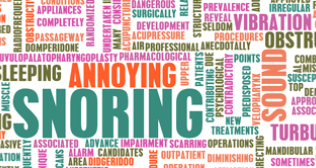
What is Nose bleed or epistaxis?
Epistaxis is the medical word for bleeding from the nose.
Who is likely to suffer from nosebleeds?
- Nose bleeds are slightly more common in men.
- Nose bleeds are more common in elderly and in the children
When are nosebleeds likely to occur?
Nosebleeds are likely to occur either in the morning or late evening but can happen at any time and often appear unexpectedly.
What causes bleeding from nose?
- Bleeding from the nose happens when a fragile blood vessel within the nose breaks, perhaps after a minor injury or infection.
- High blood-pressure may also increase the risk of nosebleeds.
- Nose is a of medications such as aspirin  and Warfarin.  These medications change the way blood clots in the body and are commonly prescribed for patients with heart disease.  If you are taking any of these medications and you develop nosebleeds, do not stop taking your medication unless advised to do so by a doctor.
In children, crusting inside the  nose is common and injury may occur from the child’s finger during nose-picking.  This is a common habit in children and can damage the lining of the nose, leading to nosebleeds.
- In young people ,nosebleeds can be caused by problems in blood clotting. Patients should be aware of prolonged bleeding after any minor cuts, tooth extractions or if the skin bruises easily.   Some simple blood tests may be required under these circumstances.
What should you do if you have a minor nosebleed?
Minor bleeding can often be controlled by pressing on the ‘fleshy’ part of the nose for 15 minutes. If this is the first time you have had epistaxis and the bleeding stops after 15 minutes with pressure, no further treatment or tests are likely to be needed.  You should avoid straining at the toilet and strenuous exercise for a few days after you have had nosebleeds.
When to see your doctor?
If the bleeding is severe and continues after applying pressure for 15 minutes then you need to be seen by an ENT specialist immediately.
How do doctors treat nosebleeds?
There are a number of different ways that doctors can treat nosebleeds.
In the past, doctors would have usually placed ‘packs’ of sponge or material into your nose to stop the bleeding. This often worked very well but was rather uncomfortable. Patients also had to stay in hospital for several days.
Packs are still used today but only in specific circumstances. Under these circumstances, you may need to stay in hospital with your packs in place for a few days.  Once the bleeding has stopped and your packs have been removed, the doctors will give you discharge advise accordingly.
In most other circumstances, modern technology allows doctors to look for the bleeding point inside your nose and ‘seal it off’.  This can be a fast and effective treatment for nosebleeds.  ENT doctors call this ‘Direct’ treatment or endoscopic nasal cauterisation.

 What is Nose bleed or epistaxis?
Epistaxis is the medical word for bleeding from the nose.
Who is likely to suffer from nosebleeds?
What is Nose bleed or epistaxis?
Epistaxis is the medical word for bleeding from the nose.
Who is likely to suffer from nosebleeds?
















